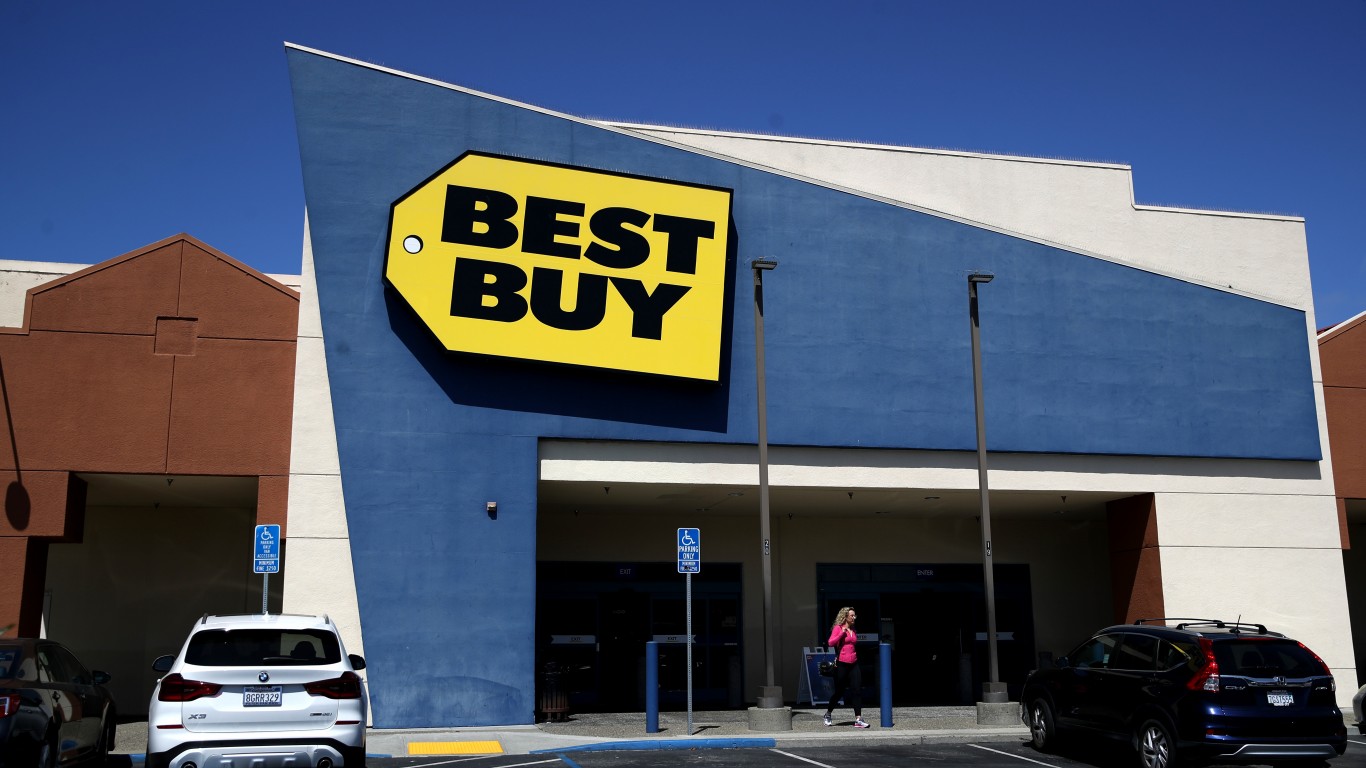Companies and Brands
Investors Flee Best Buy, Won't Return

Published:
Last Updated:

Several large retailers have posted stock selloffs this year. Among them is consumer electronics company Best Buy, the shares of which have dropped nearly as much as the retail train wreck Target.
So far, in 2022, Best Buy’s stock is down more than 25%. The drop from a year ago was worse at 33%.
The first reason for the collapse in the share price is the most obvious. Financial results for the quarter that ended May 1 made Wall St. cringe. Best Buy also revised its guidance downward.
Less evident as a cause of the drop but more persistent, is the ongoing strength of much larger rival Amazon, which has been a problem for more than a decade. Best Buy’s brick-and-mortar footprint has repeatedly been compared with Amazon’s primarily e-commerce model. Even though Amazon has posted less-than-stellar numbers recently, its sales and brand make it a tremendously powerful competitor.
Best Buy has already been hit by the early edge of what could be a very difficult recession. Brick-and-mortar retailers are almost always crushed in these downturns. The inflation environment has and will challenge Best Buy with prices for its products it may not be able to pass on to customers. It will also have a challenge as it tries to keep labor costs low.
The primary question facing Best Buy now is whether it will keep its national store footprint at its current size, or reduce it as retailer Gap did recently. Profit per store will become critical. Will Best Buy weather this, or retrench? It may need to retrench to get the attention of investors.
Credit card companies are pulling out all the stops, with the issuers are offering insane travel rewards and perks.
We’re talking huge sign-up bonuses, points on every purchase, and benefits like lounge access, travel credits, and free hotel nights. For travelers, these rewards can add up to thousands of dollars in flights, upgrades, and luxury experiences every year.
It’s like getting paid to travel — and it’s available to qualified borrowers who know where to look.
We’ve rounded up some of the best travel credit cards on the market. Click here to see the list. Don’t miss these offers — they won’t be this good forever.
Thank you for reading! Have some feedback for us?
Contact the 24/7 Wall St. editorial team.